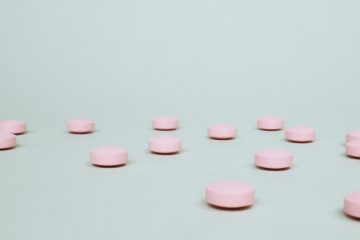
Water is essential for daily functioning. It’s, therefore, important to replenish our water supply before, during, and after exercising.
Water is vital to maintain blood volume and support muscle movement, as well as regulate body temperature.
It is important to replenish the water lost when sweat beads evaporate from the skin surface during physical activity. This is how our body removes heat.
Water intake is essential to rehydrate the body after a prolonged or high-intensity workout. The body will begin to dehydrate if you do not rehydrate.
Signs And Symptoms Of Dehydration
Contrary to what is commonly believed, thirst does not necessarily indicate that you should drink. It usually means you’re already dehydrated.
According to healthy water technologies Australia, the most common signs and symptoms of dehydration are:
- Chills
- Clammy skin
- Elevated heartbeat
- Nausea
- Headache
- Dizziness
- Shortness of Breath
- Dry Mouth
You should drink water as soon as you experience these symptoms. Dehydration can lead to the following symptoms if you don’t replenish your body fluids.
- Heat exhaustion
- Heat stroke
- Muscle cramps/fatigue
- Breakdown of skeletal muscles
Checking the color of your urine is a common way to determine if you’re dehydrated. You’re well-hydrated if you can see it is pale and clear. If it is darker, your body needs more fluid.
Why Do You Need To Rehydrate
You will lose performance if you do not rehydrate while exercising. According to the Victorian Government Better Health Channel, “a loss of liquid equal to two percent of body mass is enough to cause a detectable decline in performance.”
Even a loss of more than two percent can cause severe physical symptoms such as nausea, vomiting, diarrhea, and other gastrointestinal issues.
To help alleviate this, it’s best to drink water before, during, and after exercise so that you don’t try to replace all of the fluids at once. It is best to drink water before, after, and during exercise to avoid this.
Over-hydration is another possibility. This can lead to hyponatremia, which could result in death.
Tips For Staying Hydrated
You can take a number of steps to stay hydrated while exercising. According to Sports Dieticians Australia, here are the best tips:
- Start your exercise routine well-hydrated to reduce the chances of dehydration.
- Plan your drinking during exercise according to the sweat rate you experience.
- Monitor your weight immediately after exercising to determine your final fluid deficiency.
- Plan to replace between 125-150% (of the fluid deficit) over the next two to six hours. If you lose 1 kg (1000mL), then you need to drink between 1250-1500mL in order to rehydrate.
- To achieve this goal, drink fluids along with your recovery snack and meal.
Be prepared. You should always have a large bottle of water with you when you exercise or at least access to water from a faucet/fountain.
You can also use your scheduled breaks to make sure you’re drinking enough water during your workout. You can use both paid and free hydration reminders to help you.
Water vs. Sports Drinks And Other Liquids
Most of the time, the answer to this question is yes.
Water
Water is not only the most accessible fluid and free, it has many health benefits. It contains fluoride, which is great for your teeth.
There are alternatives to water for those who do high-intensity, endurance, or low-intensity exercise.
Sports drinks
Sports drinks are a great option if you need to replenish your energy reserves in addition to just body fluids. They contain the necessary carbohydrates and electrolytes.
If you’re doing a long endurance or high-intensity session, then sports drinks can be a good alternative to water. Sports drinks contain a lot of sugar, so they should not be taken in large quantities.
Other liquids
Better Health suggests that you consume fruits and vegetables high in water, such as watermelon and pineapple, as well as cucumbers, tomatoes, and zucchini.
Some athletes prefer to drink other liquids during or after exercising. Caffeine was removed from the World Anti-Doping Agency’s list of banned substances.
Caffeine has been shown to give a quick burst of energy, maintain performance for a short period of time, and reduce the perception that you are exerting yourself. It is not recommended to use it for general exercise due to other possible side effects.
Alcohol is another fluid that can be consumed after exercising (especially in local sports facilities). Alcohol does not replenish fluids, and it is not an alternative to water. It has the opposite effect, as it can cause dehydration in athletes and hinder their ability to recover.
Understanding the importance and benefits of hydration, especially water consumption, before, during, and after exercising will allow you to perform better, replenish fluid losses, and recover after an exercise.
What Is NAD Supplement and How Does It Work?
August 8, 2025Outie Belly Button: Causes and Treatments
August 8, 2025Magnesium Spray Benefits: What You Need to Know
August 8, 2025
Leave a reply Cancel reply
You must be logged in to post a comment.
-
How to Vape: 5 Tips for the Beginner
February 22, 2021





